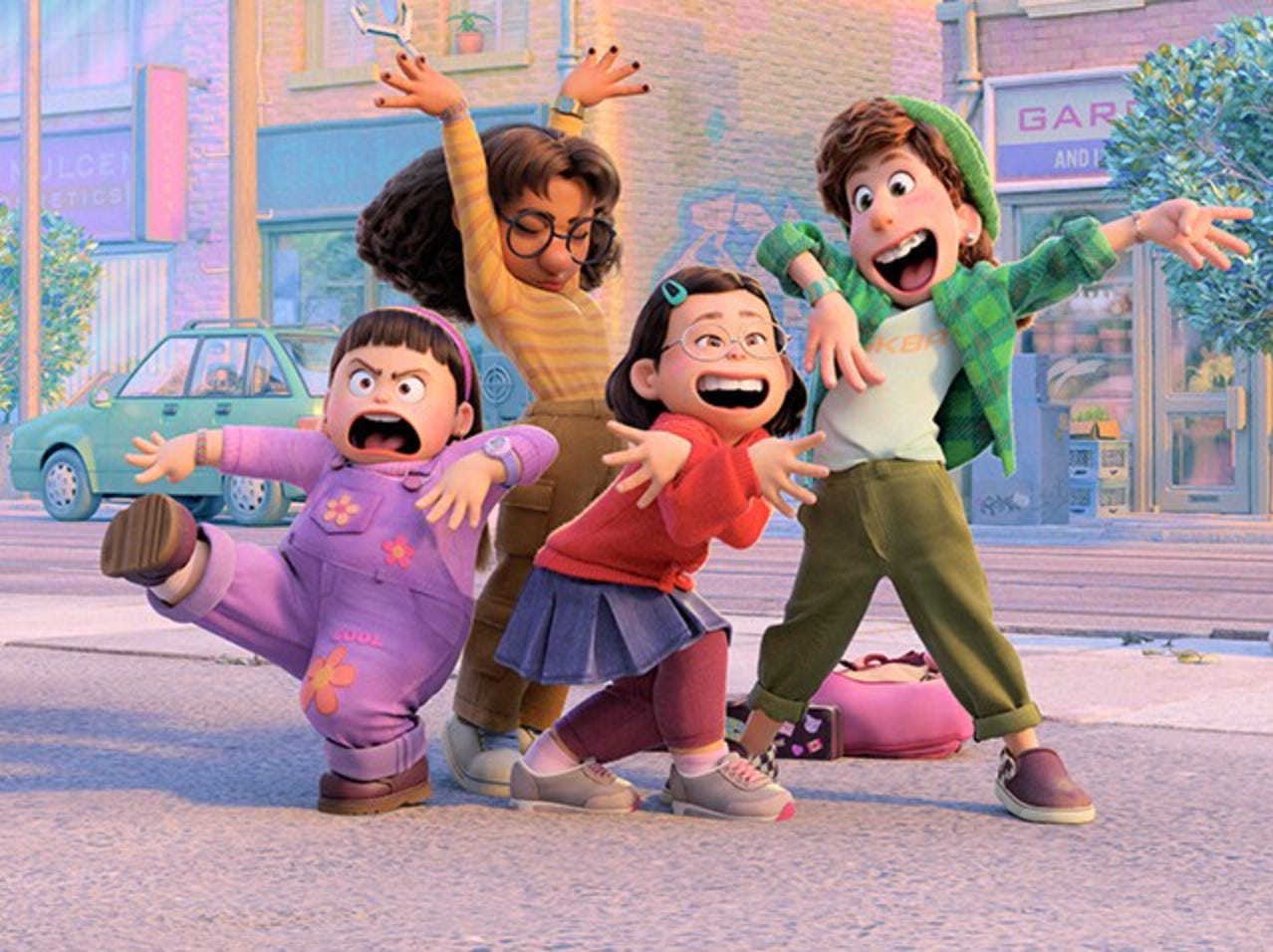Turning Red
Messy. Loud. Weird.
Messy. Loud. Weird. That’s how Turning Red (2022) describes its heroine, and also how I’d describe being thirteen. One of Pixar’s most chaotic and confident movies, which was done no favors by the pandemic, Turning Red follows Meilin Lee (Rosalie Chiang), a Toronto middle-schooler who wakes up one day to discover she’s turned into a giant red panda. Unlike the title of the film, which does triple or quadruple duty, this is not a metaphor. Or, it is: but it’s also a literal, poofy, whiskered, tail-thwapping problem that knocks over desks and causes mayhem in Chinatown. Her parents are freaked. Her friends are obsessed. Meilin is... confused.
The panda, it turns out, is a generational gift-slash-curse passed down from her Chinese ancestors: a blessing turned burden that now arrives right on time with her period. Director Domee Shi doesn’t dance around the metaphor. She leans into it with full pads-and-cramps candor. What makes Turning Red special isn’t just the obvious allegory about puberty, but how accurately messy it depicts growing up. She crushes hard on guys, draws embarrassing fan art, lies to her parents, and throws herself into a homemade pop concert scheme with the energy of a caffeinated theater kid. She’s not a precocious adult in a kid’s body: she’s just a kid, navigating hormones, heritage, and a mother who watches her like a hawk.
That mother, Ming (Sandra Oh), is a perfectionist with a pager and a glare sharp enough to slice bao. She’s also painfully familiar. Not in a villainous way, but in a “yeah, I’ve been there” sort of way: hovering, worrying, trying to protect Meilin from the very world she needs to explore. Turning Red doesn’t condemn Ming; it lets us feel her fear. This is the rare film without a true villain. Life doesn’t need villains to be hard.
The visual style is a sugar rush of Y2K tweenhood: chunky flip phones, Tamagotchi, boy bands with frosted tips. There are big Studio Ghibli influences too, especially in the way food is animated and emotions bubble to the surface. And like Ghibli, it refuses to flatten or moralize its protagonist. Meilin is allowed to be selfish, wild, emotional, and brave, all at once. The comedic beats and the timing of the editing stand out among Pixar’s oeuvre. Despite the character design, which is starting to feel bland (look up “beanmouth”), Turning Red subverts expectations, for the first time in years, of what a Pixar movie “is.”
When Turning Red was released, it sparked a backlash from “adults” who seemed to think the movie was “too specific,” as if specificity weren’t the entire point of storytelling. There’s a scene where Meilin doodles sexy fan art of a local convenience store clerk and hides it under her bed. There was much online pearl-clutching. But isn’t that childhood? Or at least it’s a childhood that Disney’s usual moral polish hasn’t sanded down. Domee Shi, who won an Oscar for her short film Bao, brings a wonderfully personal voice to the chaos. You feel like you're watching memories rather than blueprints.
More importantly, Turning Red is part of a welcome turn in Pixar’s lineup toward letting non-white, non-male, non-sanitized characters take the wheel. Like Soul, Coco, or Luca, this one is culturally specific but emotionally wide open. What makes Meilin’s journey resonant isn’t just the metaphor of transformation: it’s the specificity of who she’s transforming into. Not a hero. Not a rebel. Just a weird kid figuring it out.
By the time we get to the final showdown, where mother and daughter clash, you’re not just watching a battle of wills. You’re watching the collision of generations, fears, dreams, and expectations. It’s gloriously ridiculous, deeply sincere, and refreshingly honest. The best part? Meilin doesn’t “fix” herself by the end. She embraces the panda. The mess. The weirdness. The loudness. Which is good advice for the rest of us. Unless your “panda” is illegal in some way. In your case, resist the panda.
Turning Red
Written by Domee Shi and Julia Cho; Directed by Domee Shi
2022
100 minutes
English
Recommended way to watch (at time of publication): Streaming on Disney+
You’ll like this if you like: Inside Out (2015), Bao (2018), My Neighbor Totoro (1988)

